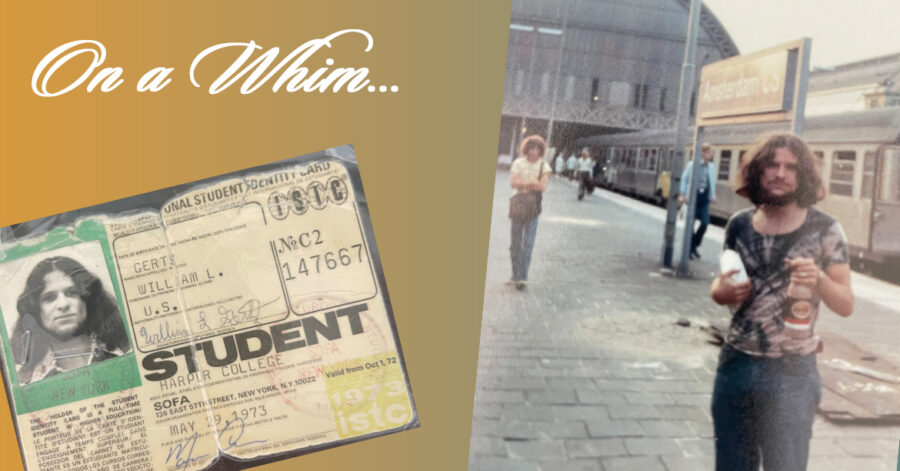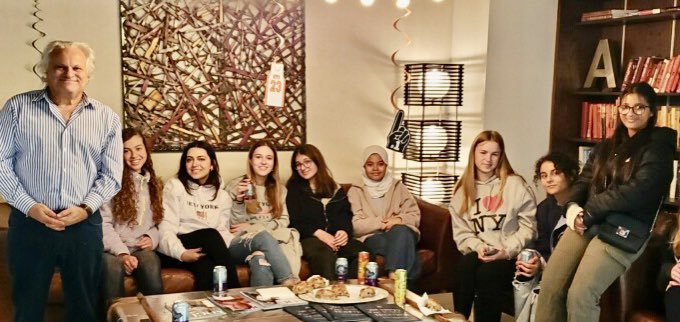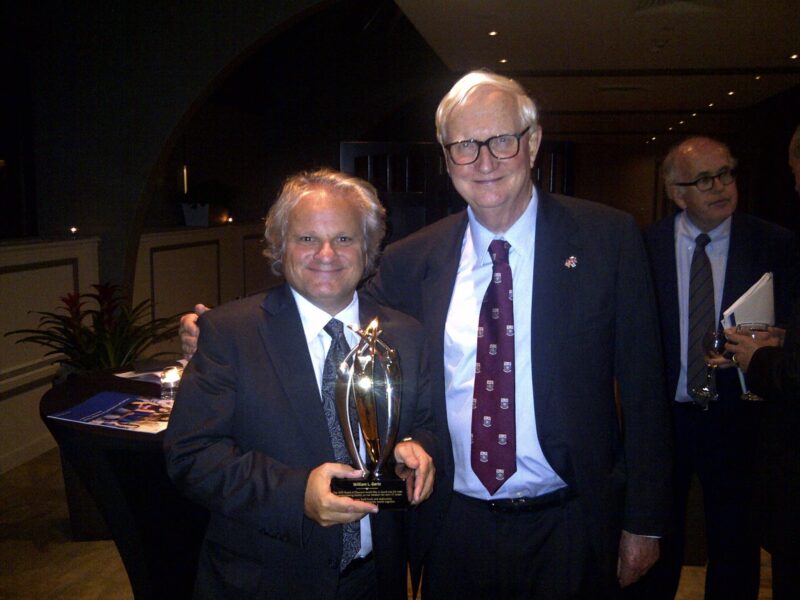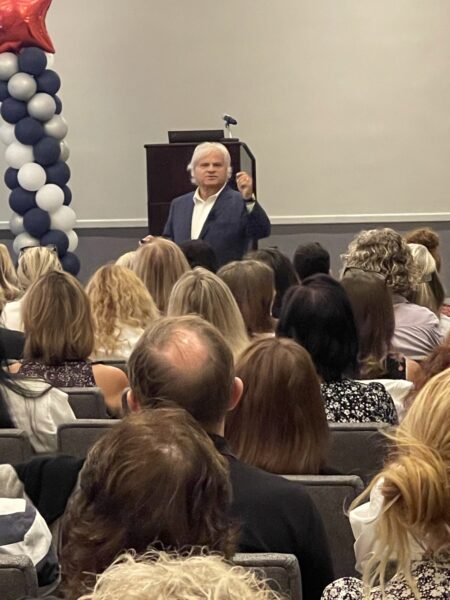
Fifty years ago today, I landed in Amsterdam. I had never been on a plane, never left the US (never left the Northeast for that matter). I was a very young 21 years old.
I decided to go to Europe on a whim. My friends were going, and honestly, my life was a bit of a mess, so I said “sure I’m in.” I was a European history major, but I had no desire to travel and see the world. Still, off I went.
It was the summer of 1973. I had no itinerary and no real plan. But I did have an international student ID card (ISIC) which students could use for discounts on flights, accommodations, and meals. Train passes were ubiquitous – student rail, inter-rail, individual country passes etc. Trains were not as fast as they are today. Back then they separated during the evening, so you had to make sure your city destination was on the front of your individual train car, or you’d get miserably lost (I learned this the hard way).
Generally, I found public transportation easy to navigate – I took the Metro in Paris, the Underground in London, and trams in Amsterdam.
The reality was, trains and my $260 student rail pass bought me freedom and the ability to go anywhere – no planning required. I brought along a couple of guidebooks for good measure, and I knew a few words in French and Spanish. It always helped to try and speak the local language (still does). I carried phrase books and tried my best. There was no way to call home, which in retrospect, was a good thing. And I couldn’t contact my friends either. With no real-time posts on Facebook or Instagram, your friends just wished you the best when you left – and all your experiences went unshared until you got back.
From Amsterdam Central Station, I left for Paris. It was the beginning of my love affair with European rail. I chatted with strangers from different countries, gazed out the window and ate the proverbial bread and cheese. In Paris, I wandered about and visited famous cafes such as Café de Flore and Café Les Deux Magots. And of course, while I was there, I had to see the Eiffel Tower and Notre Dame.
Most of the time it was quiet, but I was surprisingly content. When you’re alone for hours on end, you spend a lot of time reflecting on life. And for the first time in mine, I was a doer. I took chances. Not all great choices perhaps, but I left my comfort zone in the US which was a start. I was alone, but somehow, I was never lonely.
Back in Amsterdam I stayed at the Hans Brinker Hostel (which is still around), slept in Vondelpark a few nights, and just roamed around the city. I marveled at the scene at Dam Square and attempted to meet people even though I was painfully shy. The great hippie backpacking era was coming to an end, but long hair and colorful clothing were still the rule. French fries with mayonnaise was the traveler’s snack of choice, along with other hot foods from automat type vending machines. Surrounding me were beautiful canals, hip people and music was everywhere. I didn’t see the usual sights (still not a fan of Instagram-ready settings) or go to any museums. After a while, I began to talk to strangers. Most people spoke English, but the atmosphere was unlike anything I had ever experienced.
When we arrived in a town, we would just walk from the train station; occasionally visiting the accommodations counter first, but more often – we just stumbled into any cheap hotel that would take us. Sometimes I asked fellow travelers to point me in the right direction for a good place to stay. Other times, I would leave the city on a night train to Lisbon or to Rome or to Barcelona (Spain was still controlled by Franco and scary). Sleeping on the train was free. And we always brought our own food.
Money was tight, and I kept a pretty detailed expense ledger. Of course, there was no euro in those days, so I had envelopes containing British pounds, French francs, Italian lira, and German marks. It was incredibly confusing when we crossed borders, but the money was so colorful and interesting to me. Rooms were about $5 a night, $10 if you wanted a private bath. You washed your clothes in the sink and the restaurant meals were delicious and cheap. Five bucks would feed you well.
Inside my leather satchel, I had $1000 in AMEX traveler’s checks that needed to last me the entire summer. American Express offices were where you cashed checks and picked up your mail. I didn’t spend much money until the end of my travels when I bought a Spanish shawl for my girlfriend (now wife) and some gifts for my family. There were beautiful and unique items for sale all over Europe – shockingly without any need for Etsy or Amazon. Amazing.
For the next two months, I traveled with my friends and people I met along the way. If someone on the train was going someplace interesting, we went with them. Once we stayed at a private home in Switzerland and slept on the ferry from the UK to Holland (outside in the rain with a bottle of vodka for company, but that’s a different story).
I didn’t realize it at the time, but my career path was chosen for me right then and there. Who would have looked at me and thought that I would one day be the Chairman of a successful international exchange organization? Certainly not me. Back then, all I wanted was to explore new places and talk with interesting people.
Back to the US
When I finally returned stateside, I faced a situation much like our study abroad students do. The term “re-entry” wasn’t even used at that time, but I was already bruised by it. I couldn’t understand why no one was interested in hearing about my trip and all the fascinating experiences I’d had. For me, it was life-changing and wonderful, but I guess you had to be there.
I was completely unprepared for life in the US; America was in terrible shape–Nixon, Watergate, the war in Vietnam raging. I was bored with the culture and had no verifiable job. I wrote a lot and worked as a freelance journalist. While writing was invigorating and came naturally to me, I needed to make money and start on the road of responsibility. But not quite yet.
I married my soulmate (a fool in love I was) and instead of buying furniture, we took all our wedding money and set off for Europe with another couple. This time, we had an itinerary and a plan. We would travel for two months and then stay in a rental home (top floor) in a small town in Eastern France called Le Bourget-du-Lac where there would be no annoying Americans talking about the exchange rate. After all, we were no longer tourists (or so we told ourselves).
Traveling was different this time around. We visited museums (and actually enjoyed them) and I think we saw every church in Europe. We walked a tremendous amount (tracked with my ever-present pedometer), ate in fancier restaurants, and stayed in (slightly) better hotels. As fate would have it, we fought with the other couple and decided to separate with a plan to meet up in Italy. We left our suitcases in a locker in Amsterdam and traveled with just our shoulder bags. When our clothes got dirty, we went back to Amsterdam to get new ones. The weather was getting cold, so we bought winter coats at a local flea market.
In Bourget, we settled in for the winter. We didn’t speak French, and no one spoke much English. But we got by. We read Balzac and I was writing a lot; I wrote some of the best poetry of my life there. We played guitar and listened to French music on the radio. We thought we were pretty cool. But we met no one and folks wondered what these American hippies were doing in their town. Everything seemed to be on strike and the trains weren’t running. By December, it was so freezing, that in the mornings, we had to manually light the oil heater and run back into bed until it warmed up. We talked a lot about life and cooked a lot of soup. Soon we’d be heading home, wondering what was next.
I grew up in Europe. I left as a boy – and returned a man. My political views began to reflect an international influence (I learned about European politics through conversations on the train). I had been a poor student academically but realized that I could learn so much more outside of school. In the classroom, I was bored. But here, I soaked up the culture and history like a sponge. All I needed was to be intrigued – and I was.
Hitting the Pavement
Arriving back in the US, I was mentally exhausted, but I knew I had found my calling. I spent a year trying to figure out how I could make a living off of traveling and writing.
I answered an ad in the New York Times for a low -level management position at CIEE (Council on International Educational Exchange) in New York City. At CIEE, I organized travel workshops at US colleges and got to meet people. I learned to speak in public and made so many connections. I was put in charge of international student ID cards for our travel division. I got to travel overseas once again.
I did this for two years. Then I quit without telling my wife (sorry Ev) and started writing freelance again. In 1985, we said goodbye to our railroad tenement in the Village and moved to greener Connecticut where a job as an Associate Director of Marketing was waiting for me. The organization was the American Institute For Foreign Study – better known as AIFS.
AIFS had a mission I could stand behind, a mission that had meaning to me. Its mission statement was “bringing the world together” and it was doing just that. Travel, study abroad, and cultural exchange – it was everything I was looking for. When I arrived at AIFS in the summer of 1985, I knew I was home.
As the Associate Marketing Director, I got to write, create brochures – and work with designers and video companies. I loved it. I had a great boss who welcomed me and introduced me to life outside NYC. I was working on marketing projects for our high school travel program and our college program (now called AIFS Abroad). I also did projects for Camp America and Academic Year in America (AYA).

But perhaps the most exciting, was the brand-new program we were starting called Au Pair in America. I was in charge of the press launch. The result was a feature article in the New York Times and an appearance on Good Morning America. I was on my way.
In a few short years, I had my own assistant, and I was responsible for all the marketing for AIFS. I went to London frequently to meet with AIFS Chairman and Founder, Sir Cyril Taylor, an imposing figure. Cyril served under six secretaries of education in the UK and would be knighted twice by the Queen. On my first trip over, I told him I wanted to run the company. He laughed.
It was during this time period that so many facets of my life fell into place. My wife and I had two beautiful children, we got a dog and settled into life in our Connecticut home. With my career soaring, I traveled all over the world giving workshops and presentations and meeting students. I frequently held focus groups with our students asking why they chose AIFS and how we could do better (talking to the students was always my favorite; perhaps I saw myself in them). I went to conferences like NAFSA and later on, the Forum. AIFS was growing by leaps and bounds.
The more I worked in international education, the more I wanted to make an impact. To be a part of something greater. The year was 2010, and I was CEO.
The lack of diversity in our field was apparent for years, and I wanted to do more. That summer, we held the AIFS Diversity Conference in Washington DC. Over 100 study abroad advisors and educators from around the US were in attendance. We came together with ideas to increase diversity in our field, our universities, and our programs. It was a groundbreaking moment for me, one that I’m very proud of. We brought more voices to the conversation, one that continues to this day.
The next eight years were calm; things were moving in the right direction and AIFS was thriving. Sadly, in 2018, Sir Cyril Taylor passed away, leaving me at the helm as Chairman of AIFS. It was time for me to go to the next level. And I was ready.
Since its inception, AIFS encountered (and survived) many crises. Pan Am 101, TWA 805, 9/11, and the financial crisis of 2008 to name a few. But COVID in 2020 was the worst of all. We were hard hit, as were many organizations in our field. But due to careful planning and wise money management, AIFS would not only recover, but grow.

Now
Today at AIFS, our financial resources are stronger than they were pre-pandemic. Of course, life has changed for all of us. Our staff work a hybrid schedule now (and love it) and my job has changed too. I’ve removed myself from the day-to-day, having appointed a new CEO (Jack Burg) from our ranks.
Often in times of change, passions grow. This has been the case for me. Over the past two years I’ve been concentrating on strategy and philanthropy (still with a hand in marketing, much to the chagrin of the team). But I love it and the remote schedule means I have another decade of work in me.

There’s still so much I want to do at AIFS. All our programs are doing well but I’d like to add a few more. We recently launched a new intern/trainee J-1 program which has great potential. Another goal of mine is to make sure we keep talented individuals in our organization, promoting from within whenever possible. There will always be challenges, but we will weather the storms because we have smart people working hard with a sense of purpose and passion.
I also want to ensure that AIFS is a forward-thinking organization, diverse in culture and unified in thought and deed. Every day we are working toward being more sustainable while we continue to provide global program offerings that are unique and can stand the test of time. It’s a work in progress.
But most importantly, I want to keep providing grants to underserved students to be able to study abroad. Simply put, travel changed my life so helping others do the same is really important to me. It’s why I do what I do to this day.
Looking back, I see that kid on a train bound for Paris. I see myself, not knowing what my life would be. A lifetime of experiences awaited – they would mold me into the Chairman, the marketer, the writer, the husband, the father, the grandfather (and the dog walker). But 50 years in, I’m still that curious traveler. It’s still me.
In recent years, I have learned how important it is to pause and take a deep breath. I’m learning to observe a bit more (laugh a lot more) and appreciate the journey.
My advice? Hop on the train. You might be surprised where it takes you.
Bill Gertz is the Chairman of the American Institute For Foreign Study (AIFS), the parent company of AIFS Abroad.
3 comments
“Don’t stop…thinking about tomorrow!” A mantra for our generation!! I hope your grandkids, and mine, grow up learning to trust their instincts and (within reason:) take risks ⛺️🛖🛤️🎈
This is fascinating, as a firmer camp america participant and interviewer I knew your name, now I feel like I know a little of the man behind the name. As a parent of teenagers I want the world to be their oyster, I want them to see and understand the way others live. My eldest has just returned from 2 weeks in Morocco (travelling with the girl guides) and I can see a change in the way she views things, being exposed to a culture so different to her own has shaped her.
I will be forever grateful for all AIFS has given me and look forward to seeing its fiture
Many many thanks for the kind words Anna. !